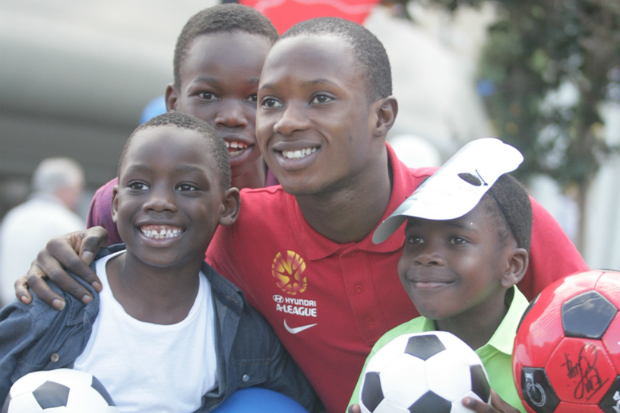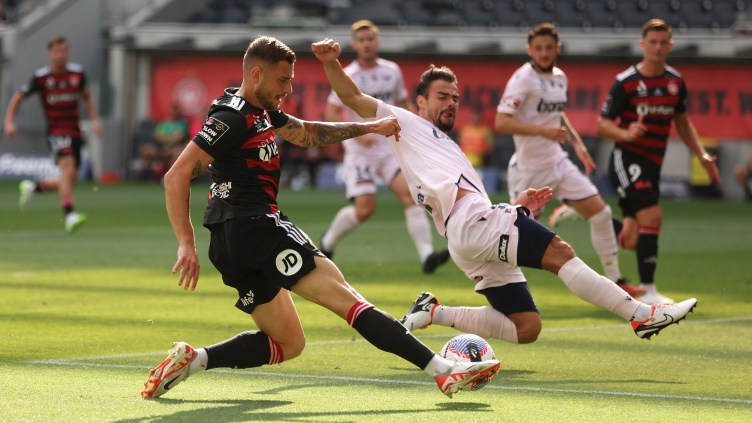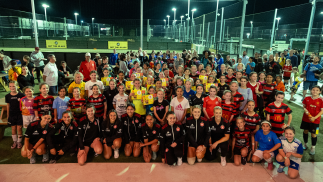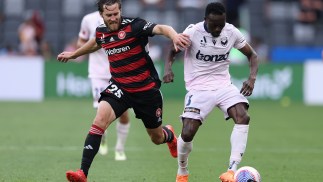Athletes are thought of as role models for a reason. The accepted wisdom is clearly because that position is thrust upon them by children. Like superheroes they achieve the extraordinary and are ascribed an aura by the media.
Some aren’t ready. That alone isn’t their fault it’s just reality. In football we’re particularly fortunate. At any time, any club in any nation is all but assured to house an assortment of cultures, backgrounds, beliefs. Such is the result of the world’s most played game.
Take Alusine Fofanah.
Inspiration is hardly inherent in 17-year-old footballers but Western Sydney Wanderers’ prodigious talent proves why role models are made by more than just status.
“Nothing comes easy in life, you have to sacrifice a lot of things to become what you want to become,” Fofanah says.
“That’s what I did.”
The teenager debuted over a year ago at just 16. He became the youngest Hyundai A-League player to do so and it occurred just eight years after arriving in Australia. Fofanah and his family which includes five brothers and sisters settled in Sydney from Sierra Leone seeking a brighter future.
“Africa is a very difficult place to be and the situation wasn’t too good,” he explains.
“My family decided to move to Australia and at the moment things are falling our way. I appreciate how my life is going and the opportunity I’ve gotten in this country. If I was back home I would never think this would happen.”
Fofanah is one of two former refugees amongst Tony Popovic’s first-team squad. The elder, Golgol Mebrahtu, was born in Sudan after his family fled their war-torn home of Eritrea before briefly returning upon the nation’s independence. Mebrahtu’s parents sought more opportunities for their seven children and the Red Cross facilitated a life-changing move to Australia.
“It was very unknown,” Mebrahtu says.
“I was a bit anxious. I remember thinking we’re leaving our extended family and everything else behind and coming to a new place. But having my family with me made the transition quite easy and I was still young so I could adapt quite quickly.”
His upbringing, which he describes as “turbulent” before reaching Brisbane, stands him in better stead than most to rise to the expectations of a role model.
If football is a ‘universal language’, as Mebrahtu says, he’s an expert translator. The athletic forward was involved in Refugee Week in 2012 and relishes the opportunity to inspire.
“I was in their shoes once. I still remember when we first came to Australia I attended similar events for refugees and they would host a kids day where we could play football. I remember that made it a lot easier to live in Australia and adapt to the culture. If there’s anything I can do in that way I’m more than happy to help because that’s my path.”
Fofanah is no different despite his tender years.
“I’m a young boy as well,” he acknowledges, but that doesn’t keep him from wanting to be a beacon of hope for those from shared backgrounds.
“I want to encourage them and talk to them, advise them about the right things they should be doing. I know they’re looking up to me so I try to assist them. I worked very hard to be where I am now and I just want to let them know anything is possible.”
Both players speak of a desire to return to their roots soon, if not this off-season.
Family and friends await. For now we’re lucky to reflect on their leadership.




